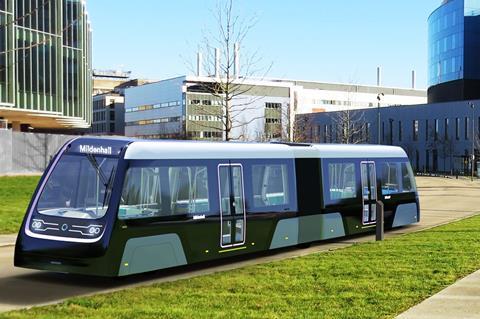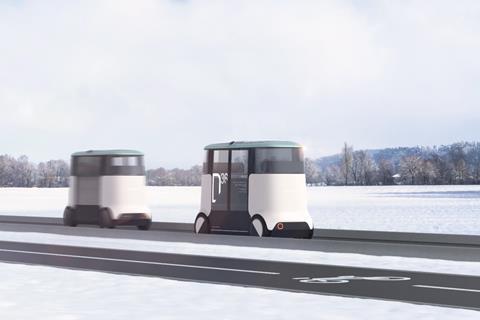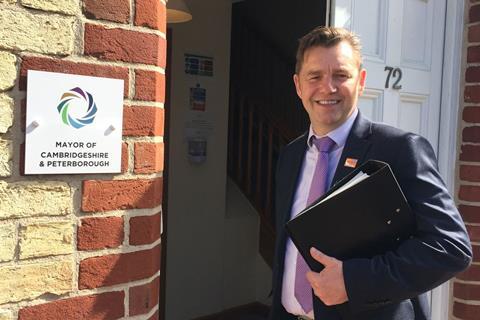
UK: Research into zero-carbon transport and modal shift strategies gained through the development of the Cambridgeshire Autonomous Metro concept is to be incorporated into an updated Local Transport Plan for the Cambridgeshire & Peterborough region, according to recently-elected Mayor Dr Nik Johnson.
Work on the CAM project had been halted following Johnson’s election in May, and on July 28 the Combined Authority board approved the suspension of work by delivery body One CAM Ltd until a ‘comprehensive review’ is carried out.

The CAM concept envisaged the use of innovative technologies to develop a network of automated public transport services, potentially include tunnelling under the city of Cambridge. The then Mayor James Palmer had suggested in March that the CAM could potentially provide a 145 km network for around £2bn.
The Combined Authority board is due to agree the next steps for the programme at its meeting in September, which will include a decision on the further use or permanent closure of One CAM Ltd. The programme has an approved budget of £6·2m in 2021-22, but with the suspension of work reducing its expenditure the project company has funds to cover its costs for more than 12 months without drawing on the full allocation.

Explaining that he was being pragmatic, Johnson said that instead of developing the metro idea he wanted to ‘reinvent’ the Local Transport Plan to incorporate knowledge on new technologies, zero-carbon journeys and modal shift which had been gained as part of the CAM programme.
‘A multi-billion-pound CAM is too expensive, and in my view, not deliverable’, he explained on August 2. ‘It won’t offer a solution to the inequalities that exist across our region.

‘But the work done on the CAM can be used, and the latest thinking on 21st century transport can be just as well deployed in other parts of the county as it can around Cambridge. For example, there is real potential for new metro-style solutions for linking March and Wisbech and where cycling and walking infrastructure comes built in.
‘And it is too easy to forget about the untapped potential of buses for better connecting communities, and helping reduce the weight of transport’s carbon footprint. We must look at buses with a fresh eye, that will fully explore the potential for a franchised system which makes services work better for people and places, and cleaning up air with emission-free journeys.’



